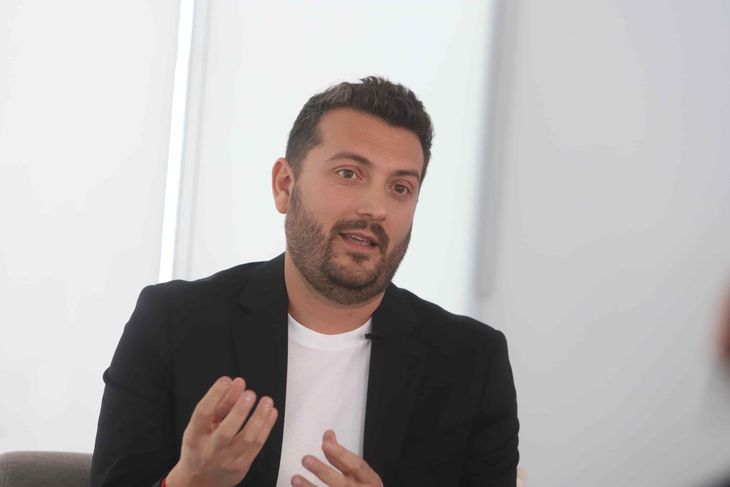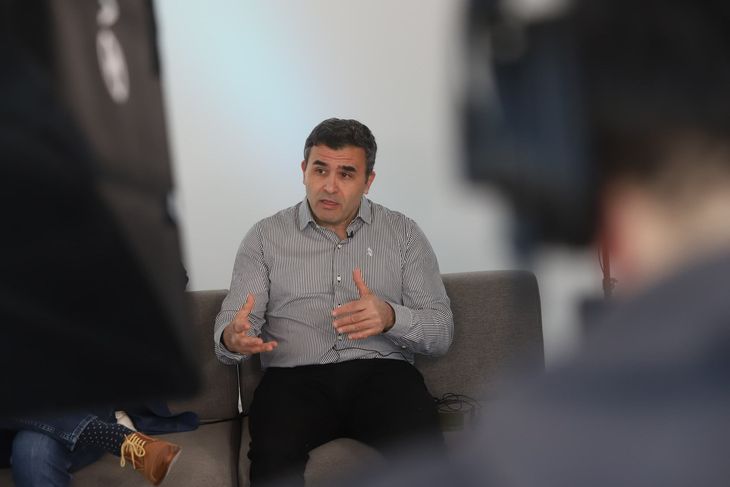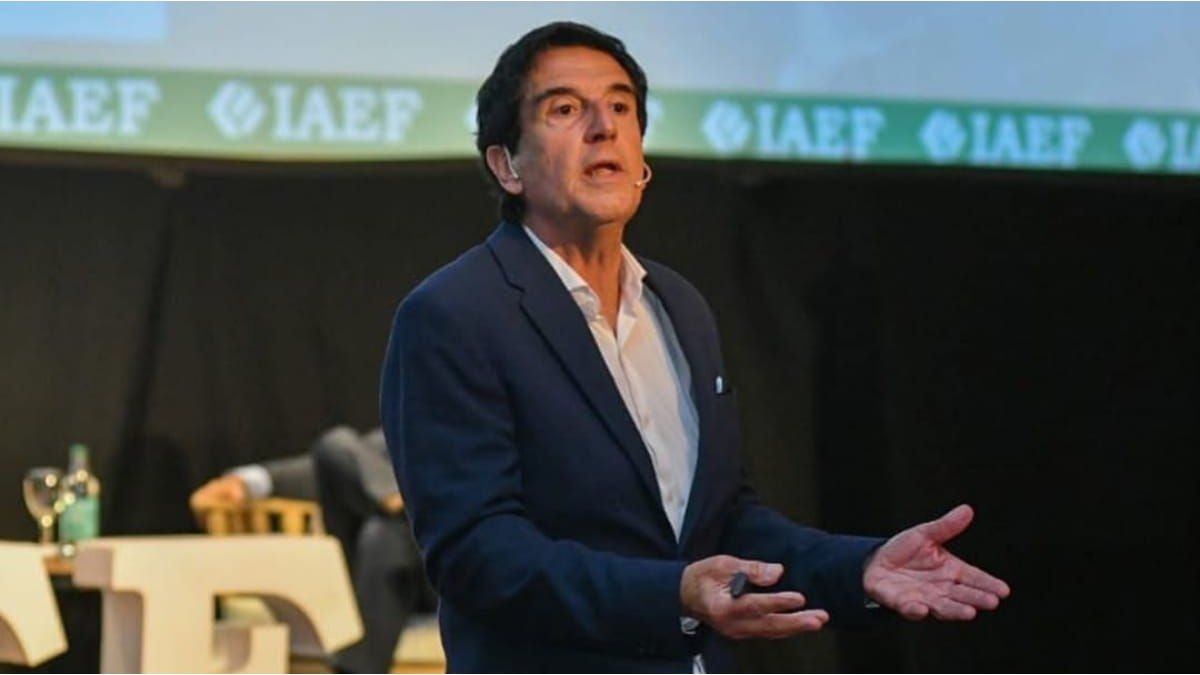Martin Sciarrillo, Director of Data and Artificial Intelligence for Spanish South America for Microsoft, Maximilian Ignaciuk, CTO of BYMA and Director of TECVAL, and Andres Pallaro, Director of the Observatory of the Future of 21st Century University, participated in the first panel on Innovation and Technology of Scope of debateunder the moderation of the journalistic director of Scope, Julian Guarino.
The democratization of technology, the ability to reinvent oneself and update to current times and the use of the Artificial intelligence (AI) were some of the key concepts used by the experts.
Taking the floor, Sciarrillo highlighted that “technology goes through many of the processes that we experienced decades ago, but in recent times it has accelerated in an impressive way and the barriers to entry have been lowered a lot, especially with the appearance of players such as GPT Chat which gave everyone access to what was previously restricted to large companies or the academic area,” which is why he stressed that this translates into “a real democratization of access to technology.”
panel 1.jpg
In turn, Ignaciuk highlighted that “innovation has to do with transforming us, it is giving value and being able to use technology in order to have better results, be more agile, shorten times and increase efficiency”, while he contrasted: “On the human side, it is about asking ourselves how we can do things faster.”
Meanwhile, Pallaro admitted that “The pandemic has been a major turning point in the history of humanity and innovation and technology have allowed us to build responses to the challenges of the moment and the environment.” “We always talk to our students who live with a golden age that we did not have. The challenge is how we can get a person to develop skills, combine disciplines and retire knowing how to implement things in the world of action to carry out their life project,” he said.
The importance of reinventing yourself
On the other hand, Sciarrillo highlighted Microsoft’s experience as “a father of technology who knew how to reinvent himself” and he stressed: “Everyone used Windows or other iconic products, but the company has known how to update itself and today it has a very important role with the use of AI.” “Within the company, this notion and this desire to innovate and not stay comfortable in a leadership position are cultivated,” he said.
panel 111.jpg

Ignaciuk highlighted BYMA’s 186% year-on-year growth and the 86% in the number of accounts, and clarified that “reinventing ourselves is something that is the order of the day, unlearning or questioning whether we are taking the right path.” “Before, you would put together a project, implement it, receive applause and move on. Today, if we continue with that mentality, there probably won’t be any applause because it’s useless,” he compared.
In turn, Pallaro confided that the 21st Century University “It was born innovating and linked to business,” but he stated that “today it goes hand in hand with inclusion, with the aim of reaching more people in every corner of the country so that they can study and choose a profession, but with effectiveness and reinventing racing new in the same educational system.”
The emergence of Artificial Intelligence
The debate featured the emergence of Artificial Intelligence as one of the most critical points. In this regard, Sciarrillo highlighted that “it is a spectacular moment to be hungry to learn because the barriers have been lowered a lot and AI can be used as a vehicle.”
In this regard, he mentioned the Office copilot. “It has a very specific function, which is to give you more information, insights and data points based on your tool usage patterns so you can know what file you might need or help you generate content such as a presentation,” he said.
And he added that “in the daily mode you can open the copilot Bing and navigate a conversational experience, ask questions, ask them to help you design a curriculum for a subject, or write an email.”
panel1111.jpg

At the same time, Ignaciuk warned that “the concept of AI is here to stay and if we do not use it in favor of our strategic objectives there is something we are not seeing.” “It is one thing to use AI to improve the productivity, shorten times in reports or organization and another is to use it applied in core technologies in scalable companies”, He compared this by pointing out that Artificial Intelligence “can provide a differential added value in continuing to do what we are doing.”
Pallaro also considered that the university’s vision is “to make the world more understandable and manageable by having this great copilot that is AI” and stressed “how much we would be missing without this contribution, which makes the world of data that we are creating more understandable.”
“In education there is no chance of being massive and personalized without AI. This moment is full of challenges, especially in the migration of tasks because there are things that AI will inexorably be better at than us and we have to focus on other things that we would do ourselves,” he warned.
Looking to the future of employment, he said: “We are optimistic, we believe that there is a huge chance that we can have higher value-added tasks and more interactive, but this transition will not be easy and there will be more complicated areas that will require support and a lot of work.”
Regulations and challenges
On regulatory frameworks, Sciarrillo admitted that Microsoft is “pro regulation” and stated: “We have been working for decades because we believe that regulation regulates, lowers barriers and helps adoption.” Looking ahead, he said that “the challenge for technology companies is how to continue building this system virtuously” and warned: “Today, if there is no credibility, you don’t have a product.”
Regarding this point, Ignaciuk stressed that today the challenge is to coordinate with large companies “so that they can support companies in having data protection, safeguarding and recovery.”
Finally, Pallaro assured that a challenge for the coming years is that of the areas of Human Resources. “They have a huge challenge to create the new roles and negotiate to have them because they are needed,” he stressed and concluded: “We must be aware that the challenge is that this is not an issue for 10% of the people, while the other 90% try to survive with problems from the previous era.”
Source: Ambito




